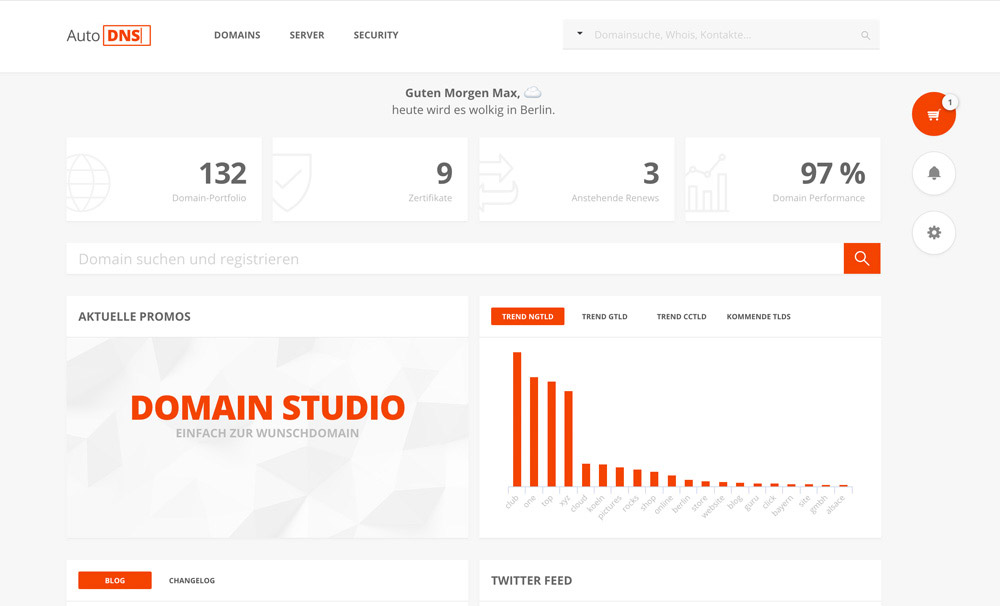Domain Studio – the intelligent domain configurator
Domain Studio compares several million data points and delivers a clear and structured overview of the search results, including alternative suggestions. With over 1,000 top-level domains, 19 million Sedo marketplace domains, 15 million premium domains, location-based results and recommendations on the basis of current trends, our Domain Studio is the most comprehensive domain search on the market.
Create AccountDomain Price Check – objective evaluation of domain value
The Domain Price Check calculates the monetary value of a domain based on a data from 2.6 million domain sales and 50 other evaluation criteria. This reference value helps domain sellers and buyers to make the right decision at the right price. It is also used to increase customer lifetime value, as it displays the value of a domain before every domain deletion in order to protect customers from losses.
Create AccountTrademark Research – intelligent domain monitoring & brandname control
Trademark Research makes it possible to find domains that include your own brandname. It scans over 360 million registered domains in 1,750 root zones. This is unique worldwide. In addition, the results are expanded with prefixes and suffixes using 3.5 million terms and then given a risk evaluation using an intelligent scoring system. In this way, trademark infringements in domains can be recognized efficiently.
Get more infoFlexible API & several Plugins
All functions in AutoDNS can be used white label and resellers can set up individual pricing. With the JSON API, all features, like the innovative Domain Studio and Trademark Research Service can also be controlled externally. This means that customers can access the full range of powerful features in AutoDNS in their own projects or implement it directly via plugins for WHMCS, HostBill or Odin Business Automation.
Account anlegenDomain Aftermarket – the world's largest domain marketplace
By connecting to the Sedo marketplace, we present the world’s largest trading platform for Internet addresses in AutoDNS, where users can choose from more than 19 million listed domains. You can also buy and sell with ease via the AutoDNS interface and profit from developments on the domain aftermarket.
Create Account









![[Translate to Englisch:] Green Energy [Translate to Englisch:] Green Energy](/fileadmin/files/internetx/images/server/housing_colocation/greenenergy.svg)
![[Translate to Englisch:] Hosted in Germany [Translate to Englisch:] Hosted in Germany](/fileadmin/files/internetx/images/server/housing_colocation/hostedingermany.svg)












